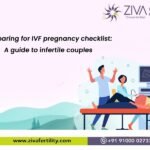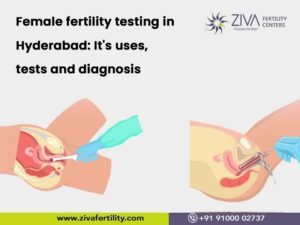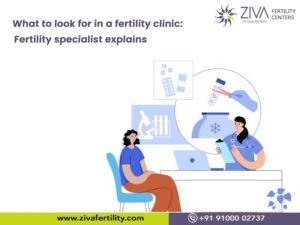Understanding the role of a father’s age in infertility is critical to taking a prudent and wise approach in the fertility process. If you decide to have children later in your life, you likely want to do it smoothly. However, pregnancy may take longer, and some people may need medical help, called assisted conception. Your age is beyond your control. Many women have children in their later years for very legitimate reasons, such as being unstable enough to support their children (for example, money or housing), not wanting to have children early. However, as women get older, pregnancy becomes more complex and the risk of miscarriage increases. So, let us see this article to know how this advancing age brings infertility in males and females.
Is age an important fertility factor?
Is age an important fertility factor?
Men will continue to produce more sperm in their lifetime, and women will have all the eggs at birth. As women reach their 30s, the number and quality of remaining eggs will drop sharply.
According to an article published in the journal Fertility and Sterility in March 2014, the risk of miscarriage and chromosomal abnormalities in children (such as Down syndrome) also increases with the mother’s age. This is why the American College of Obstetricians and Gynecologists (ACOG) recommends infertility assessment for couples where women are over 35 years old and have not become pregnant after six months of trying.
Women usually enter menopause around the age of 50, and the menstrual cycle stops permanently. According to the American Society of Reproductive Medicine (ASRM), it was a common misconception that women could still have children before this. Most women will lose the ability to conceive in their forties successfully. ASRM estimates that by the age of 40, the chance of a woman trying to get pregnant every month is about 5%. Nearly half (54%) of women over 35 will naturally get pregnant after one year of trial.
Age can also lead to a decline in male fertility. This decline is not so obvious and seems to occur later in life. However, some men will begin to experience age-related sperm changes in their mid to late 40s. According to ASRM, these changes can cause fertility problems and chromosomal or developmental abnormalities in children.
Why does female age affect fertility?
Why does female age affect fertility?
What if a male partner gets older?
What if a male partner gets older?
The ability of men to have children also declines with age, although not as good as women. If the male partner is over 40, it may get harder. Reasons include:-
Age-related factors that may be related to female infertility
Age-related factors that may be related to female infertility
Increasing age also increases the risk of specific problems that may lead to loss of fertility. These include:
- Uterine fibroids
- Fallopian tube disease, a general term describing any number of infections that affect the fallopian tubes
- Endometriosis
- Reduces their viability or makes babies more likely to develop conditions such as Down syndrome.
In addition, environmental and lifestyle factors combined with age-related factors can significantly reduce fertility. Age increases the risk of miscarriage and embryonic chromosomal abnormalities, which may cause miscarriage.
Age-related factors that may be related to male infertility
Age-related factors that may be related to male infertility
In men, age is known to reduce the quality of sperm, thereby affecting the ability of sperm to reach or fertilize an egg. In addition, with age, the number of sperm produced by men also decreases. Other age-related causes of male fertility decline include:
- Genetic abnormalities in sperm, For example, Down’s syndrome,
- Erections Dysfunction, which may be affected by medications for male testosterone levels or age-related diseases such as high blood pressure
- Changes in reproductive tissues or organs: The volume of the testicles decreases with age. In addition, men may have an enlarged prostate, which can cause ejaculation problems.
Genetic abnormalities in sperm
Erections Dysfunction,
Changes in reproductive tissues or organs:
How long does it take to get pregnant based on age?
How long does it take to get pregnant based on age?
A study found that in normal conditions with unprotected sex:
coque de telephone personnaliseaesthetic phone caseself bar bratislava
- About 7 out of 10 30-year-old women will get pregnant within a year,
- About 6 out of 10 35-year-old women will get pregnant within a year,
- About 4 out of 10 women in their 40s conceive within one year.
If you plan to have children in the future, please try not to be overly nervous due to the influence of childbearing age.
How does age affect pregnancy?
How does age affect pregnancy?
Most women who have passed the “ideal” reproductive age can get pregnant and have healthy babies, but pregnancy complications such as miscarriage also increase with age.
Women over 40 years of age are also at increased risk of problems during pregnancy due to high blood pressure and gestational diabetes. In addition, they may have twins or triplets, leading to complications such as Preeclampsia and prolonged or cesarean section.
Women over the age of 40 may also have a higher chance of giving birth to a child with Down syndrome.
To avoid the above complications, Pregnant Women over 40 years old will get extra care. In addition, since you are at higher risk of complications, you may receive more tests to check whether you and your baby are healthy as part of your prenatal care. For example, you will have additional scans and tests, and because of the increased risk of preeclampsia, your blood pressure may be checked more frequently.
Ziva infertility Clinic doctors explain your care plan in detail at the time of the appointment. You will also have the opportunity to ask questions or discuss any of your concerns.
Ziva infertility Clinic
Conclusion:
Conclusion:
Fertility usually begins to decline in the 20s or 30s and declines more rapidly after 35. Women and men who decide to postpone their pregnancy until after 35 years of age should understand the correct tests and treatments and be realistic about the chances of successful infertility treatment. By understanding all the options and understanding your own needs and goals, women and their partners will be ready to make the best decision. For more information and the best-assisted reproductive Treatment meet doctors at Ziva infertility Clinic in Hyderabad contact us at +91-9392834024, +91-9100002737.
Ziva infertility Clinic
+91-9392834024, +91-9100002737.
















